Syed Tayabul Bashar Maizbhandary, top Bangladesh Sufi leader, expressed how the actions of the Taliban in Afghanistan don’t represent Islam.
Top Bangladeshi Sufi leader Syed Tayabul Bashar Maizbhandary has said that "Taliban doesn't represent Islam" and "scholars need to make it loud and clear". Speaking exclusively to our Principal Diplomatic Correspondent, Sidhant Sibal, Maizbhandary said, "Anyone who sees what is happening in Afghanistan and rise of Taliban as the revival of Islam, they are absolutely wrong, perspective is wrong and nothing to do with Islam.”
Syed Tayabul Bashar Maizbhandary is the Joint secretary general Bangladesh Tariqat Federation, a Sufi political party that is also part of the ruling alliance. He is a member of the Maizbhandar Shariff, which is the sharif's largest Sufi group in Bangladesh. His father is the chief of the Sufi group, which has lakhs of followers not only in Bangladesh but across the world.
During the conversation, he said, "Taliban is a radical organization.....one of the impacts is in terms of security, on youth. It's a cause of concern for sub-continent, not just Bangladesh or India."
Check out the full interview below-
Sidhant: Bangladesh's economy has seen continuous economic growth in recent years. On social indicators also, Bangladesh is a star performer. But 50 years ago, during the birth of Bangladesh, the country and its people faced tremendous odds – widespread massacres, atrocities on minority communities, intellectuals, etc. How did Bangladesh overcome the challenges posed by those against the spirit of the Liberation War of 1971?
Syed Tayabul Bashar Maizbhandary: We are celebrating 50 years of Independence, and under the current government and the current leadership of the Bangladeshi Awami league, leadership of PM Shiekh Hasina, Bangladesh has grown tremendously in terms of economy and overall development of the country. It has gone far and as you have seen from international organizations, that Bangladesh is an emerging tiger in terms of economy. The country is fairing much better and will continue to grow under the current leadership.
Sidhant: The situation in Afghanistan has deteriorated rapidly in the last few days and the Taliban has declared the Islamic Emirate of Afghanistan. In the context of what we know about the previous Taliban regime, how do you see the evolving situation?
Syed Tayabul Bashar Maizbhandary: We have to go a little bit back in history, in the sub-continent, and Bangladesh. We see the anti-liberation forces, supported by Pakistan and trying to do something or other against Bangladesh or the value of Bangladesh. Although the country is developing fast, we are growing in the economy; there are the anti-liberation forces, houses of Jamaat, who coming with ill motives. It seems to be nurtured by international forces, there is always the possibility of forces, as you said the Taliban which has come up. This will not only have an impact on Bangladesh but the overall sub-continent, due to the radical mentality and it's the fact that the Taliban is a radical organization. What we have seen in the past, and we see now, and one impact will be security on the local population in Afghanistan and impact on sub-continent in terms of security, on youth. It's a cause of concern for the sub-continent, not just Bangladesh or India.
Sidhant: Taliban is known to adhere to a rigid, extreme, and fundamentalist idea of Islam. Whereas, religious life in the sub-continent, and in Bangladesh, is deeply rooted in the concept of tolerance, brotherhood, and spirituality. As the head of a Sufi order yourself, do you feel that the philosophy propounded by the Taliban so far is at odds with the prevailing belief system of the sub-continent and also Bangladesh?
Syed Tayabul Bashar Maizbhandary: My father is the chairman of the tariqat federation, maizbhabdar sharif so we will be working on his footsteps. 2 ways of looking into the development, what the Taliban stands for, who they are, what their belief and ideology. As a student of counter-terrorism, we look into the whole picture from a different perspective, and make it clear, Taliban does not represent Islam.
We have to make it clear, scholars sometimes get scared to say this because of death threats, but this is a fact that the Taliban doesn't represent Islam, and anyone who sees what is happening in Afghanistan and the rise of the Taliban as the revival of Islam, they are absolutely wrong, perspective is wrong and nothing to do with Islam. Basically, what the Taliban is teaching is their own ideology of what they understand of Sharia. Basically, something of their own. Nowhere can it be seen that they represent Islam or represents Muslim society.
The message has to go loud and clear, that what is happening in Afghanistan and its impact on the sub-continent will be harsh because apart from governments, civil society has to play a big role, important in terms of how things should shape up. The impact of the Taliban should be looked into in various manners, impact on youth and how the education system is nurturing, and how people are seeing Taliban. From a counter-terror point of view, if a percentage of the population, looking into the Taliban as a revival of Islam or representative of Islam is large then there is a problem.
The narrative has to go out, by a proper Islamic scholar, like look that if you have to be nothing to be excited about and Taliban does not represent Islam and their belief of Islam and in general no mazhab or ideology, in general Muslim or Islam don't go by their teaching. The message has to go loud and clear, so that impact is not the way we are thinking it to be. To come up with, security impact which will be there, since there is worry about the current situation, the situation is one big problem, and policy level of ideology, and we need to safeguard younger generation from this ideology, which will be the biggest challenge. How do we safeguard our younger generation, against this radical organization, known for brutality, for killing, their linkage with other terror organizations, important to safeguard from them?
Sidhant: You have pointed out correctly that the liberal Sufi values of Islam are deeply ingrained in the sub-continent. But yet, we have seen that extreme ideologies attract youth from around the world. Bangladesh has also had to tackle the phenomenon of misguided youth getting influenced by radical religious thoughts and traveling to fight for so-called jihad. Do you see that the current context may lead to a recurrence of this phenomenon and if so, how will it impact Bangladesh?
Syed Tayabul Bashar Maizbhandary: This has to be the most important question for India and Bangladesh, and for everyone and the world. Youth is the future of any country. We need to know, we don't have to go to challenge the government that what India is doing, or the Bangladesh government is doing. It's not always the role of the government; it's the cumulative role of the government, of the civil society, and different org to safeguard. Bangladesh and India's government is doing extremely well in terms of bringing the youth up front and I have respect for both governments.
The largest youth population belongs to Asia-- India and Bangladesh. We have to go beyond the capacity of governments, what u and I are going, what our parents are teaching, school systems, and the role of social media, its impact on youth. For example, the government of Bangladesh has done a lot of youth from digital Bangladesh to empowering youth at the policy level, to job creation. The youth of Bangladesh has been given a lot of preference but governments have limits.
Like region is a very sensitive subject, you have taken, a lot of caution. The current Bangladesh government has always focused on inter-religious harmony and we are the country where Hindus, Buddhism, Christians, and Muslims are living together. anti-liberation forces like Jamaat are always up to something, trying to dismantle the society, dismantle the youth and raise questions about our independence.
Sidhant: Bangladesh, like India, is a country that is home to many faiths. Fundamentalist ideologies erode the fabric of society and upend inter-religious harmony. How is Bangladesh tackling the issue of the influence of fundamentalist ideologies on society?
Syed Tayabul Bashar Maizbhandary: To understand the impact of the Taliban, you need to understand your own culture and population. Bangladesh is a diverse country. There have been issues about radicalism in Bangladesh and the government has come hard on them. The government has curbed hardliners and radical entities arrested, NGOs supported by jamaat are up to no good, calling them pious Muslims. The government is doing a good job, but it’s up to civil society and those working under counter-terrorism, and religion to come forward.
Hate speech is an issue. There are a lot of religious organizations that have come up with a lot of money, these are hardliner ideologies trying to find ground and the government has come hard on it. But it also has limits, and these organizations cover themselves quite well.
Overall, the government is doing a great job in terms of counter-terror. Governments need to empower the right organizations and think tanks. The governments don't perch religion but empower organizations that speak to university students. The impact of the Taliban on youth by the government will be looked at from a security perspective but the government can’t go in ways organizations or religious gurus who have to go forwards, so they need to be empowered.
Sidhant: You strongly believe in the ideals of liberal, progressive Bangladesh. You have taken several initiatives to strengthen this thought in Bangladesh society. You have also supported the modernization of Madrasa education in Bangladesh. Please tell us more about your efforts in his regard.
Syed Tayabul Bashar Maizbhandary: If we look into the context of Afghanistan, one of the major policy faults was the education system, we don’t take into fact, how impactful the education line is for the next generation. Education is not just teaching you alphabets, it's teaching morality civil studies, and guides the next leaders of the country. Education is the most important thing. In terms of Bangladesh, we, being a part of the Bangladesh tariqat federation, have welcomed the government’s move to modernize the madrasa.
The current government believes that if we don’t make madrasa at par with English or Bengali medium then after the students graduate, they will not be in line with what society wants. That is why modernization of madrasa is important as it brings in science, history, language, and education system is at par with another curriculum as well... it’s a rightful decision and good way to start. Hiccups will be there, but anti-liberation forces are always found in the history of a country. Students need to be equal.
![submenu-img]() Search For A Safe Return: Will SpaceX Rescue Sunita and Wilmore?
Search For A Safe Return: Will SpaceX Rescue Sunita and Wilmore?![submenu-img]() DNA TV Show: Did Khaleda Zia's son Tarique Rahman plot to overthrow Sheikh Hasina with Pakistan's ISI?
DNA TV Show: Did Khaleda Zia's son Tarique Rahman plot to overthrow Sheikh Hasina with Pakistan's ISI?![submenu-img]() A CIA-Backed Coup? Nobel Laureate Yunus At Helm in Bangladesh
A CIA-Backed Coup? Nobel Laureate Yunus At Helm in Bangladesh![submenu-img]() Vinesh Phogat finally breaks silence over her Paris Olympics disqualification
Vinesh Phogat finally breaks silence over her Paris Olympics disqualification![submenu-img]() This Bollywood actress is favourite to play Parveen Babi in her biopic; called national crush, has no flop in 6 years
This Bollywood actress is favourite to play Parveen Babi in her biopic; called national crush, has no flop in 6 years![submenu-img]() Parliament Live: 'हारे हैं इसलिए लाए वक्फ बिल', अखिलेश यादव के बयान पर लोकसभा में हंगामा, JDU ने किया समर्थन
Parliament Live: 'हारे हैं इसलिए लाए वक्फ बिल', अखिलेश यादव के बयान पर लोकसभा में हंगामा, JDU ने किया समर्थन![submenu-img]() 'रिटायर होते ही राजनीति में न आएं, कल आप कोर्ट में थे, लोग क्या सोचेंगे', जजों को लेकर CJI चंद्रचूड़ की बड़ी टिप्पणी
'रिटायर होते ही राजनीति में न आएं, कल आप कोर्ट में थे, लोग क्या सोचेंगे', जजों को लेकर CJI चंद्रचूड़ की बड़ी टिप्पणी![submenu-img]() दिल्ली में रहती है Sheikh Hasina की बेटी, इस पॉवरफुल पद पर है तैनात, जानिए बांग्लादेश की पूर्व पीएम का बेटा क्या करता है
दिल्ली में रहती है Sheikh Hasina की बेटी, इस पॉवरफुल पद पर है तैनात, जानिए बांग्लादेश की पूर्व पीएम का बेटा क्या करता है![submenu-img]() लीक हुआ NEET PG 2024 का पेपर? एग्जाम कैंसिल करने की याचिका पर Supreme Court करेगा सुनवाई
लीक हुआ NEET PG 2024 का पेपर? एग्जाम कैंसिल करने की याचिका पर Supreme Court करेगा सुनवाई![submenu-img]() Waqf Amendment Bill 2024: संसद में पेश हुआ वक्फ बोर्ड संशोधन बिल, क्यों भड़के हैं इस पर विपक�्षी दल, पढ़ें 8 पॉइंट्स
Waqf Amendment Bill 2024: संसद में पेश हुआ वक्फ बोर्ड संशोधन बिल, क्यों भड़के हैं इस पर विपक�्षी दल, पढ़ें 8 पॉइंट्स![submenu-img]() Not Sundar Pichai, Nandan Nilekani or Nikesh Arora…this 'Danveer' of IIT donated 288 crores to his institute
Not Sundar Pichai, Nandan Nilekani or Nikesh Arora…this 'Danveer' of IIT donated 288 crores to his institute![submenu-img]() Meet woman who left high-paying job to crack UPSC, got AIR 23 with self-study, but didn't become IAS officer due to…
Meet woman who left high-paying job to crack UPSC, got AIR 23 with self-study, but didn't become IAS officer due to…![submenu-img]() Meet doctor-turned-IAS officer who secured AIR 478 in UPSC exam, his famous IAS wife is...
Meet doctor-turned-IAS officer who secured AIR 478 in UPSC exam, his famous IAS wife is...![submenu-img]() Meet Kamya Mishra, who cracked UPSC exam in first attempt, became IPS but resigned after 4 years due to...
Meet Kamya Mishra, who cracked UPSC exam in first attempt, became IPS but resigned after 4 years due to...![submenu-img]() Meet woman who quit her Rs 50 lakh job as NASA scientist, to crack UPSC exam twice, became IPS officer with AIR…
Meet woman who quit her Rs 50 lakh job as NASA scientist, to crack UPSC exam twice, became IPS officer with AIR…![submenu-img]() Breaking Olympics 2024: Heartbreak For India! Vinesh Phogat Disqualified Ahead Of Gold Match
Breaking Olympics 2024: Heartbreak For India! Vinesh Phogat Disqualified Ahead Of Gold Match![submenu-img]() Bangladesh Political Crisis: Passengers Recount Scary Unrest After Air India Flight Lands in Delhi
Bangladesh Political Crisis: Passengers Recount Scary Unrest After Air India Flight Lands in Delhi![submenu-img]() Lok Sabha: TMC MP Sayani Ghosh Attacks Modi Government, Says 'Vikas Ki Mausi 10 Saal Mein..'
Lok Sabha: TMC MP Sayani Ghosh Attacks Modi Government, Says 'Vikas Ki Mausi 10 Saal Mein..'![submenu-img]() Wayanad Landslide: Forces Continue To Look For Survivors As Rescue Ops Enters Day Eight | Kerala
Wayanad Landslide: Forces Continue To Look For Survivors As Rescue Ops Enters Day Eight | Kerala![submenu-img]() UK Riots: 400 Arrested, Widespread Vandalism Hits Shops, Cars, And Homes In Six Day Violence
UK Riots: 400 Arrested, Widespread Vandalism Hits Shops, Cars, And Homes In Six Day Violence![submenu-img]() Vinesh Phogat finally breaks silence over her Paris Olympics disqualification
Vinesh Phogat finally breaks silence over her Paris Olympics disqualification![submenu-img]() Paris Olympics 2024: India's full schedule for August 8; check events, timings, live streaming details and more
Paris Olympics 2024: India's full schedule for August 8; check events, timings, live streaming details and more![submenu-img]() REVEALED: Real reason why Vinesh Phogat gained 100 grams which led to her disqualification
REVEALED: Real reason why Vinesh Phogat gained 100 grams which led to her disqualification![submenu-img]() Vinesh Phogat's first picture from hospital surfaces after her disqualification from Paris Olympics, See here
Vinesh Phogat's first picture from hospital surfaces after her disqualification from Paris Olympics, See here![submenu-img]() Paris Olympics: India women's table tennis team lose 1-3 to Germany in QF, wrestler Antim Panghal loses R16 tie
Paris Olympics: India women's table tennis team lose 1-3 to Germany in QF, wrestler Antim Panghal loses R16 tie![submenu-img]() 8 health benefits of consuming cucumber seeds
8 health benefits of consuming cucumber seeds![submenu-img]() Meet star who was once insulted by Karan Johar, rejected from shows, sang in trains; now gives Rs 100-crore blockbusters
Meet star who was once insulted by Karan Johar, rejected from shows, sang in trains; now gives Rs 100-crore blockbusters![submenu-img]() Royal Enfield Classic 350 to Himalayan 650: 5 bikes set to launch in August 2024
Royal Enfield Classic 350 to Himalayan 650: 5 bikes set to launch in August 2024![submenu-img]() In pics: Ileana D'Cruz reveals son Koa's face, drops adorable photos from his 1st birthday
In pics: Ileana D'Cruz reveals son Koa's face, drops adorable photos from his 1st birthday![submenu-img]() Who is Sam Merchant? Triptii Dimri’s rumoured boyfriend, businessman who parties with Bollywood celebs, is founder of...
Who is Sam Merchant? Triptii Dimri’s rumoured boyfriend, businessman who parties with Bollywood celebs, is founder of...![submenu-img]() Haryana: Internet, bulk SMS services suspended in Sirsa due to...
Haryana: Internet, bulk SMS services suspended in Sirsa due to...![submenu-img]() Finance Bill 2024: FM Sitharaman announces big amendments to LTCG tax proposal, check all changes here
Finance Bill 2024: FM Sitharaman announces big amendments to LTCG tax proposal, check all changes here![submenu-img]() India losing allies: What is Foreign Minister S Jaishankar's achievement?
India losing allies: What is Foreign Minister S Jaishankar's achievement?![submenu-img]() Loss for country...: Brij Bhushan Sharan Singh's son on Vinesh Phogat's disqualification from Paris Olympics
Loss for country...: Brij Bhushan Sharan Singh's son on Vinesh Phogat's disqualification from Paris Olympics ![submenu-img]() 'Loss for country...', says Brij Bhushan Sharan Singh's son on Vinesh Phogat's disqualification from Paris Olympics
'Loss for country...', says Brij Bhushan Sharan Singh's son on Vinesh Phogat's disqualification from Paris Olympics ![submenu-img]() Wings of Refuge: Rafales escort Hasina to safety
Wings of Refuge: Rafales escort Hasina to safety![submenu-img]() Bangladesh in a crisis: A coup, protests and a fleeing Prime Minister
Bangladesh in a crisis: A coup, protests and a fleeing Prime Minister![submenu-img]() DNA Explainer: What is Waqf Board Act and why does Modi government want to amend it?
DNA Explainer: What is Waqf Board Act and why does Modi government want to amend it?![submenu-img]() DNA Explainer: Why is Bangladesh burning again?
DNA Explainer: Why is Bangladesh burning again?![submenu-img]() Voter Sentiment: Harris outshines Biden among young and non-white voters
Voter Sentiment: Harris outshines Biden among young and non-white voters![submenu-img]() This Bollywood actress is favourite to play Parveen Babi in her biopic; called national crush, has no flop in 6 years
This Bollywood actress is favourite to play Parveen Babi in her biopic; called national crush, has no flop in 6 years![submenu-img]() Adil Hussain urges India to protect minorities in Bangladesh: 'Hang their heads in...'
Adil Hussain urges India to protect minorities in Bangladesh: 'Hang their heads in...'![submenu-img]() Kumar Sanu says he gets 'no work' from film industry: 'Everywhere I go...'
Kumar Sanu says he gets 'no work' from film industry: 'Everywhere I go...'![submenu-img]() After her jibe at Vinesh Phogat over Olympic disqualification, Kangana Ranaut shares her pic from hospital, calls her...
After her jibe at Vinesh Phogat over Olympic disqualification, Kangana Ranaut shares her pic from hospital, calls her...![submenu-img]() 'We're heartbroken': Alia Bhatt, Janhvi Kapoor react after Vinesh Phogat is disqualified from Paris Olympics
'We're heartbroken': Alia Bhatt, Janhvi Kapoor react after Vinesh Phogat is disqualified from Paris Olympics![submenu-img]() Meet woman, new neighbour of Mukesh Ambani's brother Anil Ambani, owner of Rs 500 crore home, her husband is...
Meet woman, new neighbour of Mukesh Ambani's brother Anil Ambani, owner of Rs 500 crore home, her husband is...![submenu-img]() Telephone, TV, Fridge, ATM are invented by this country, it's not US, UK, China, Japan, Korea
Telephone, TV, Fridge, ATM are invented by this country, it's not US, UK, China, Japan, Korea![submenu-img]() What is the speed of Cheetah, it can reach from Noida to Lucknow in just...
What is the speed of Cheetah, it can reach from Noida to Lucknow in just...![submenu-img]() Meet Laurent Ballesta, first photographer in last 59 years to receive 'Wildlife Photographer of the Year' twice
Meet Laurent Ballesta, first photographer in last 59 years to receive 'Wildlife Photographer of the Year' twice![submenu-img]() Days after UPSC cancels ex-trainee IAS officer Puja Khedkar's candidature, Delhi HC says...
Days after UPSC cancels ex-trainee IAS officer Puja Khedkar's candidature, Delhi HC says...
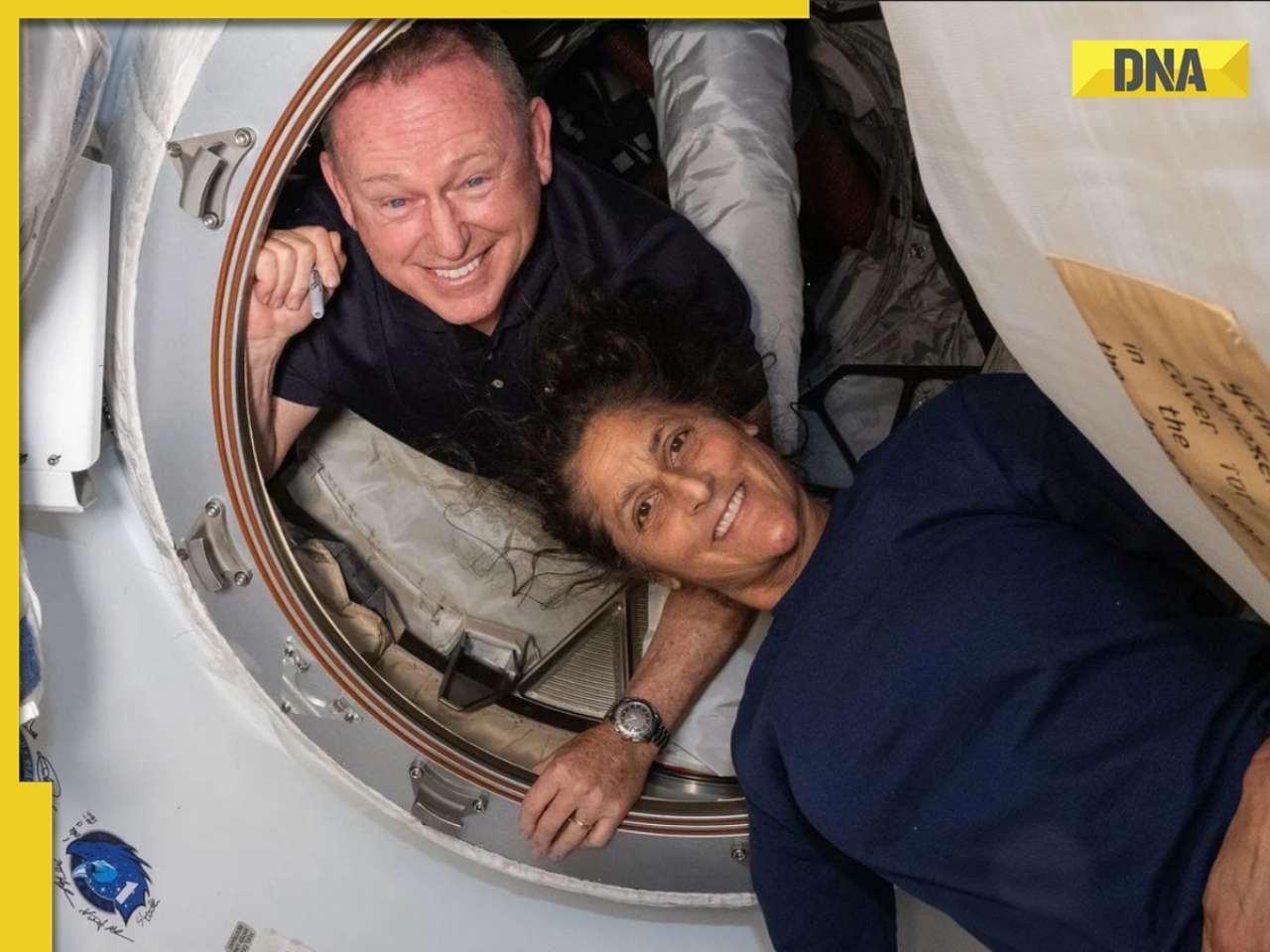
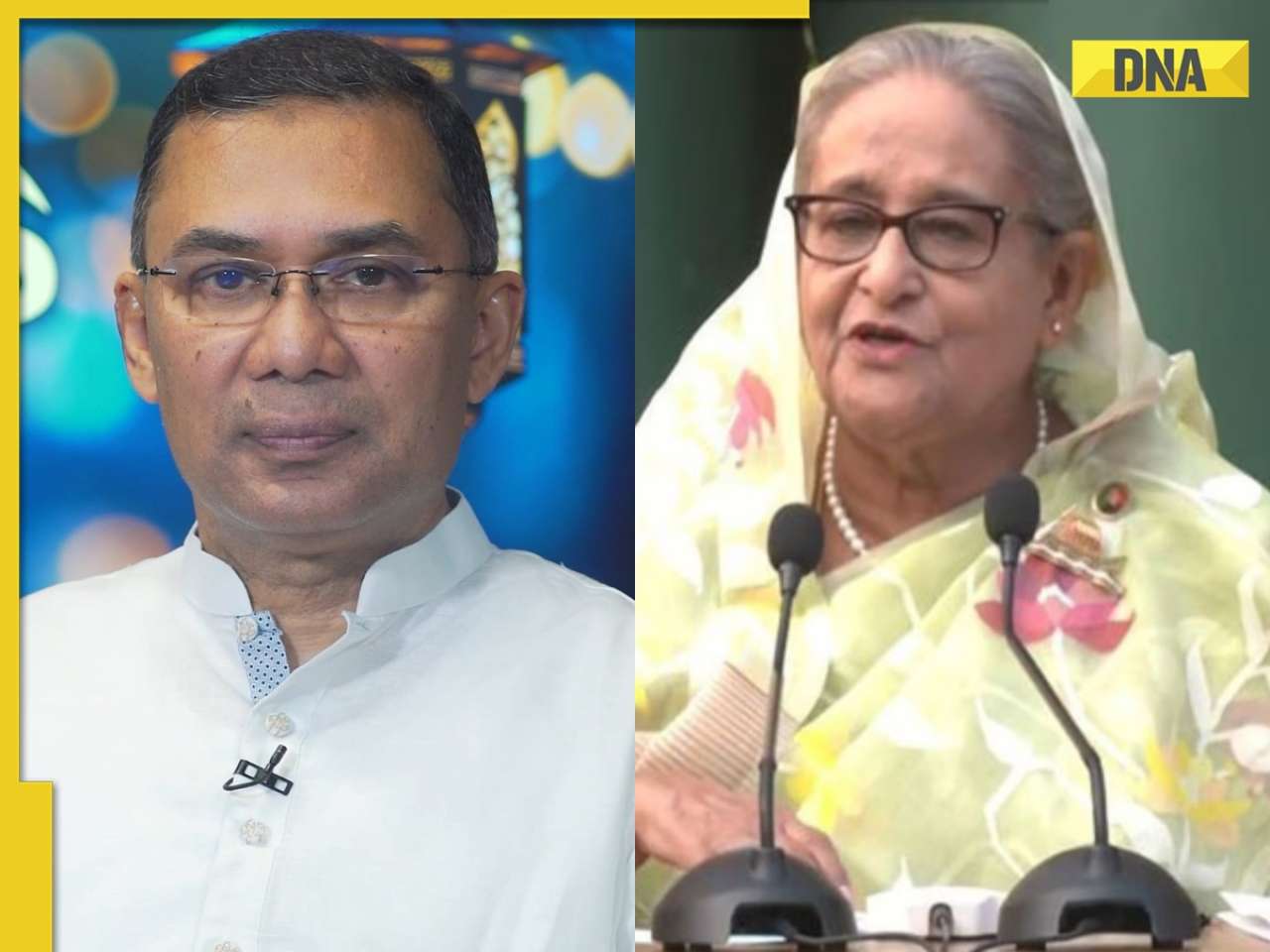











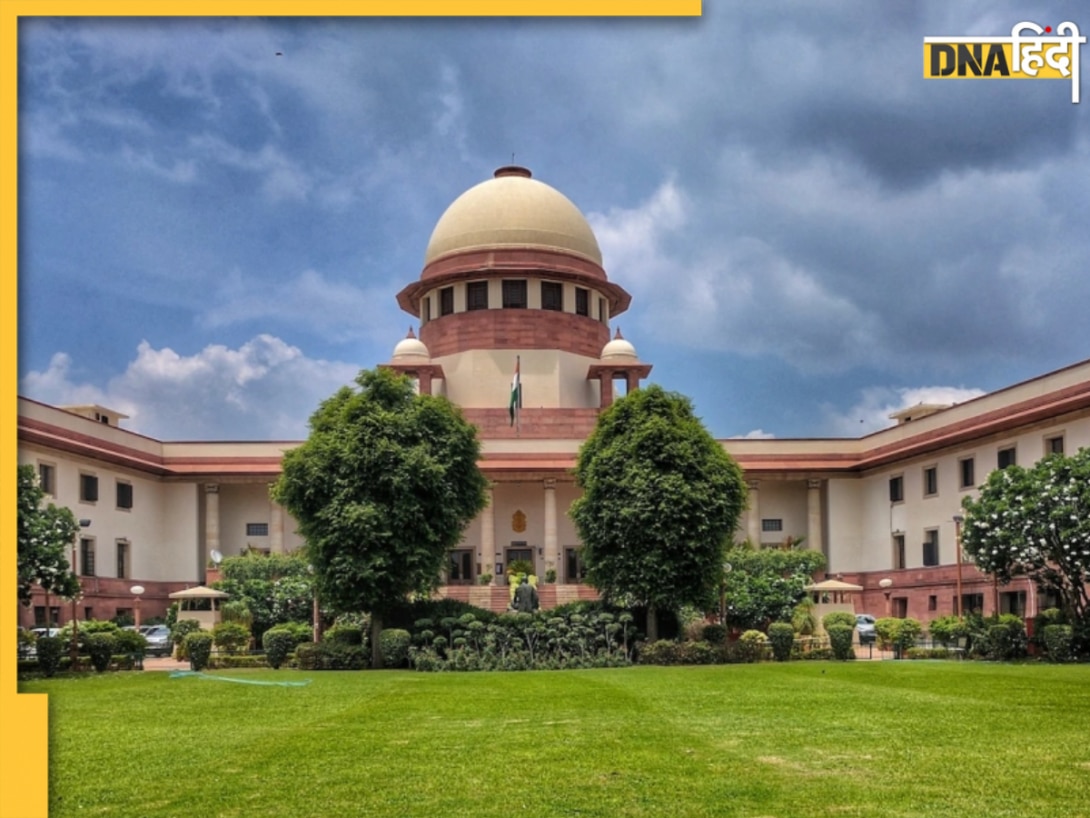

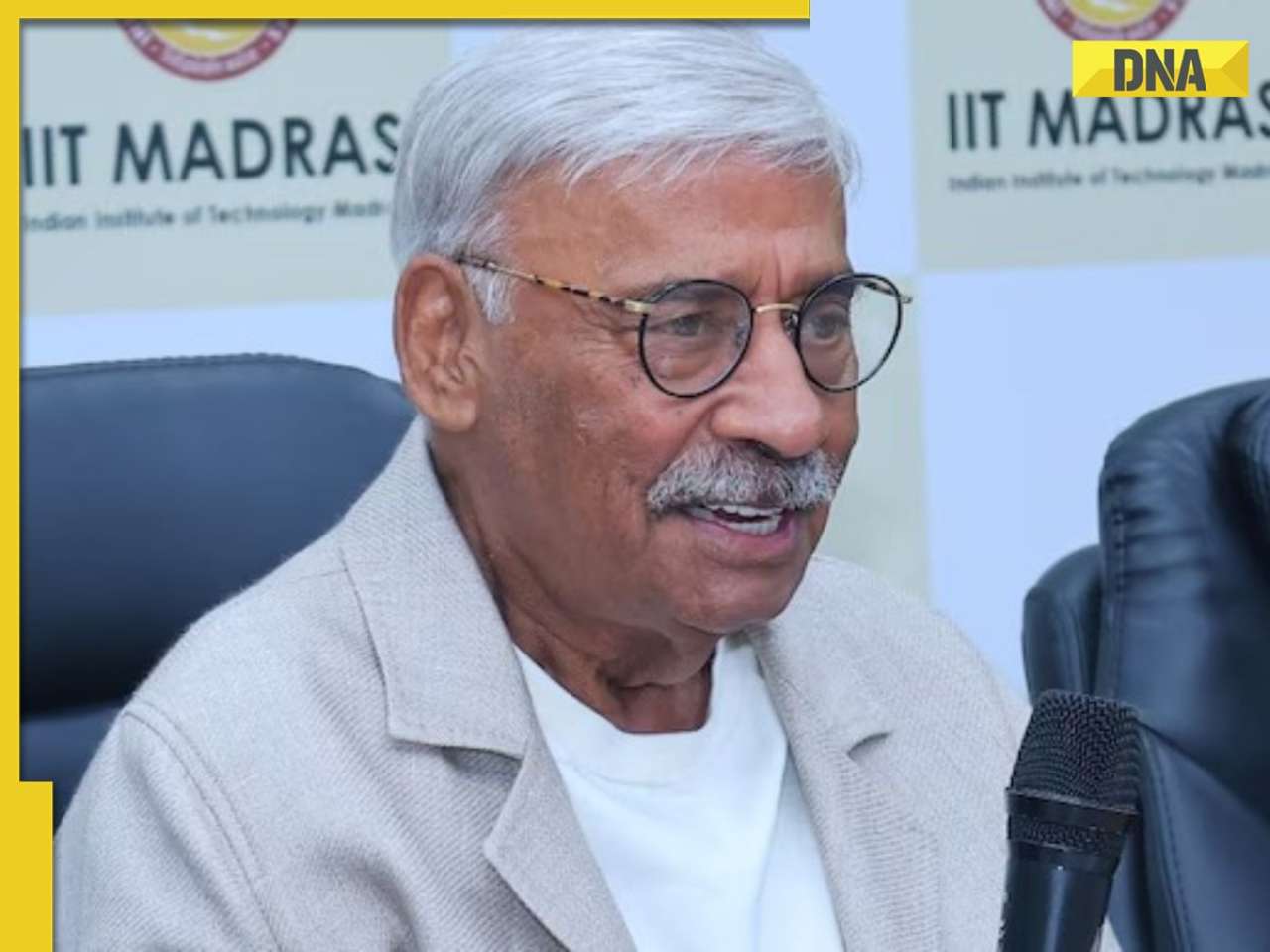





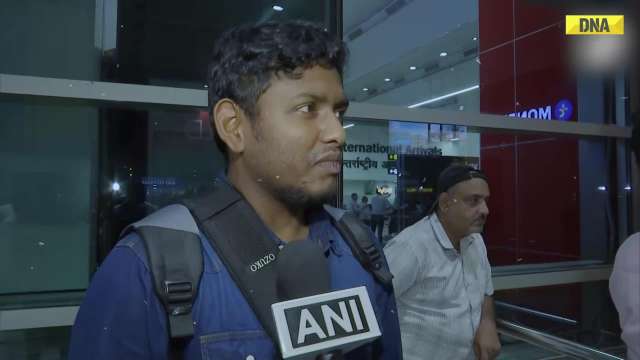
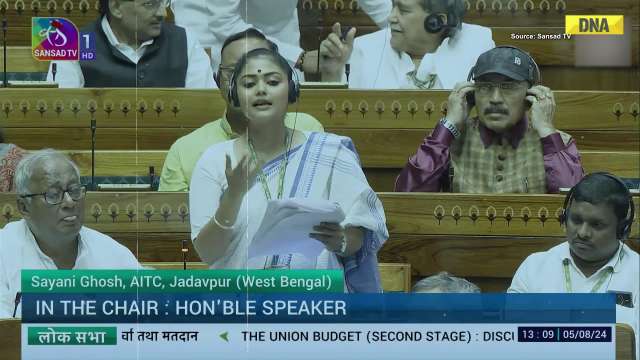
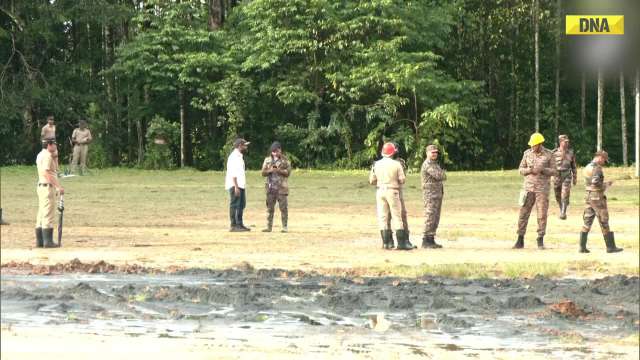











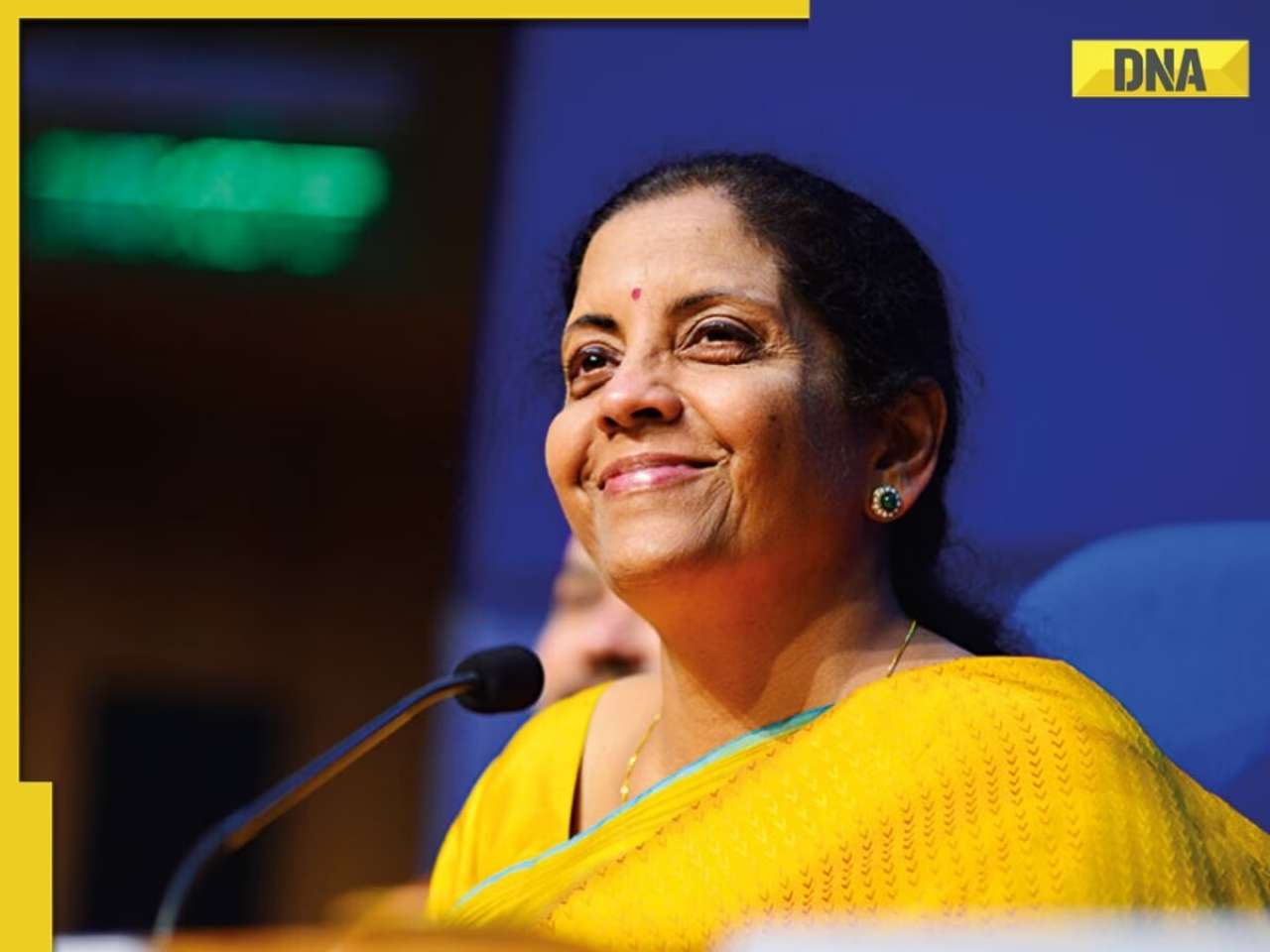
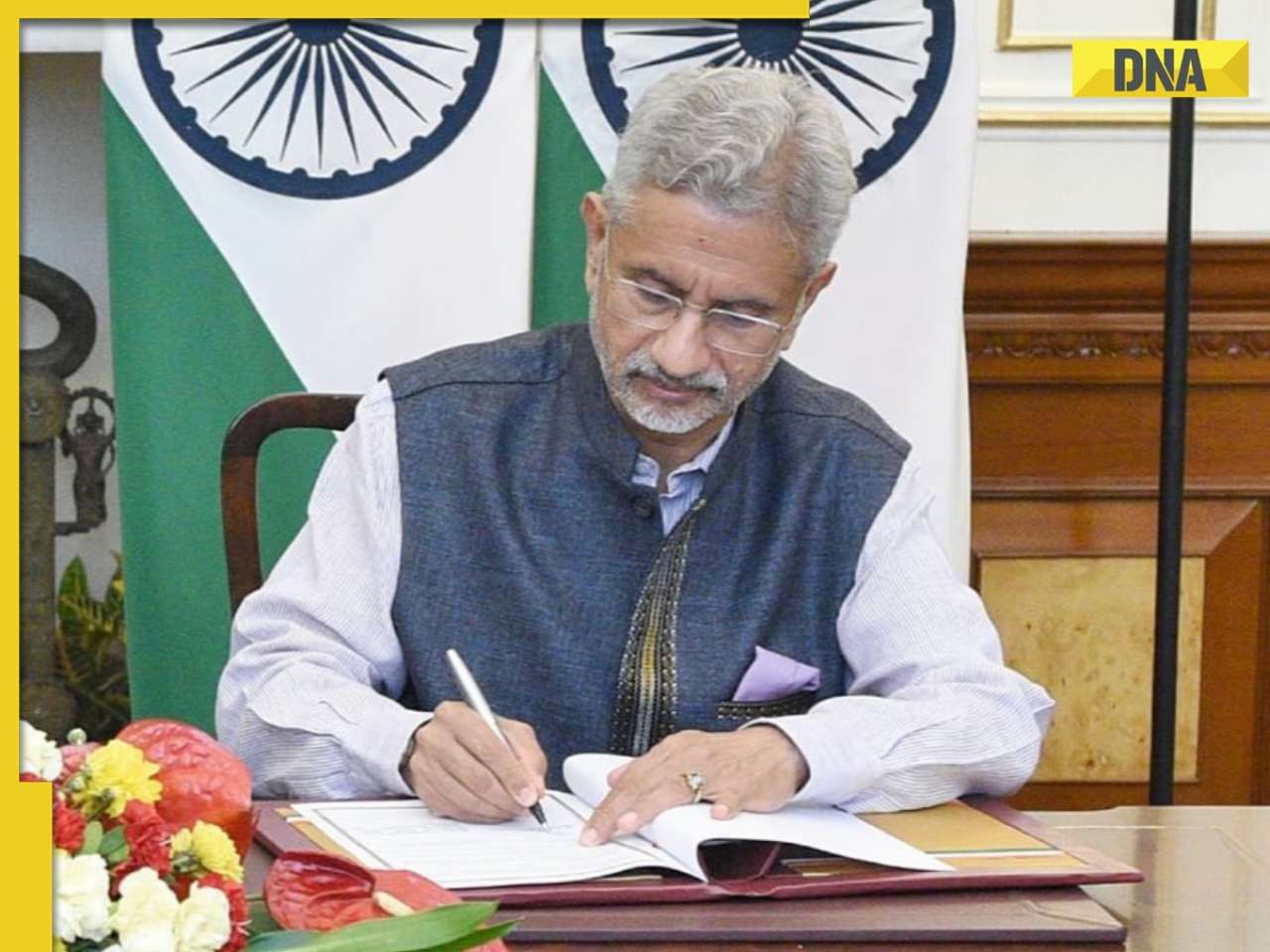


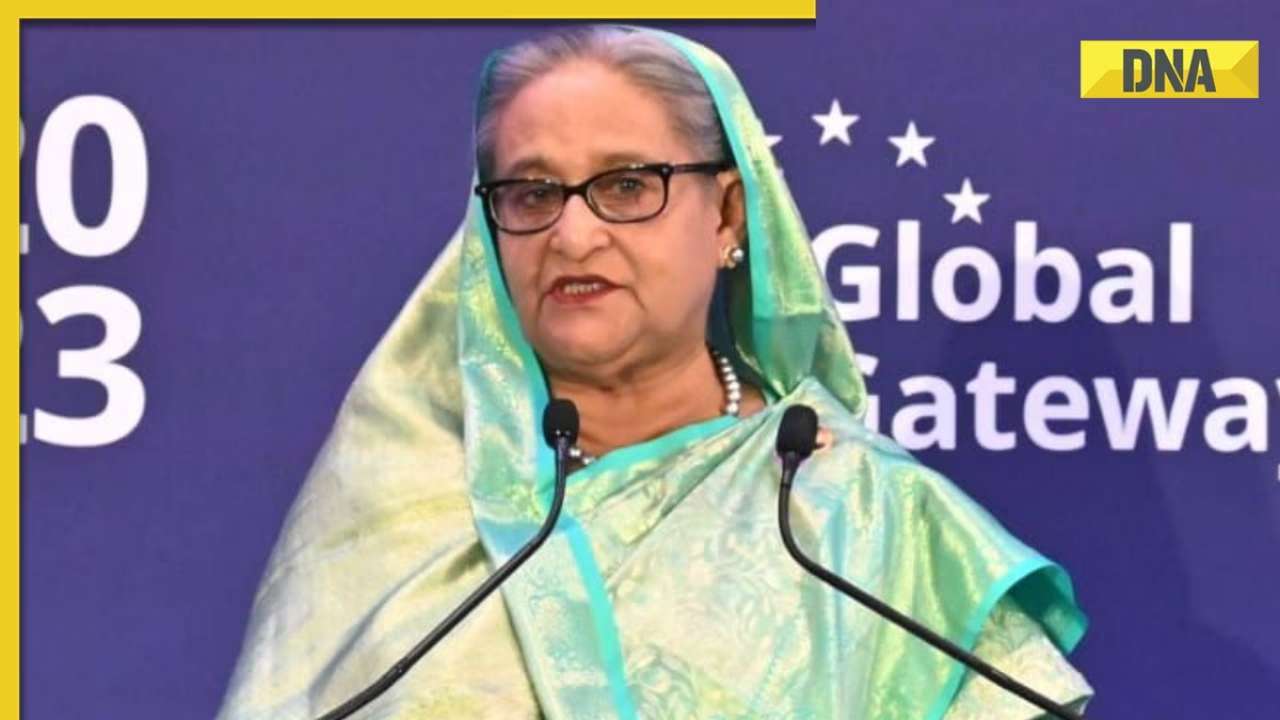
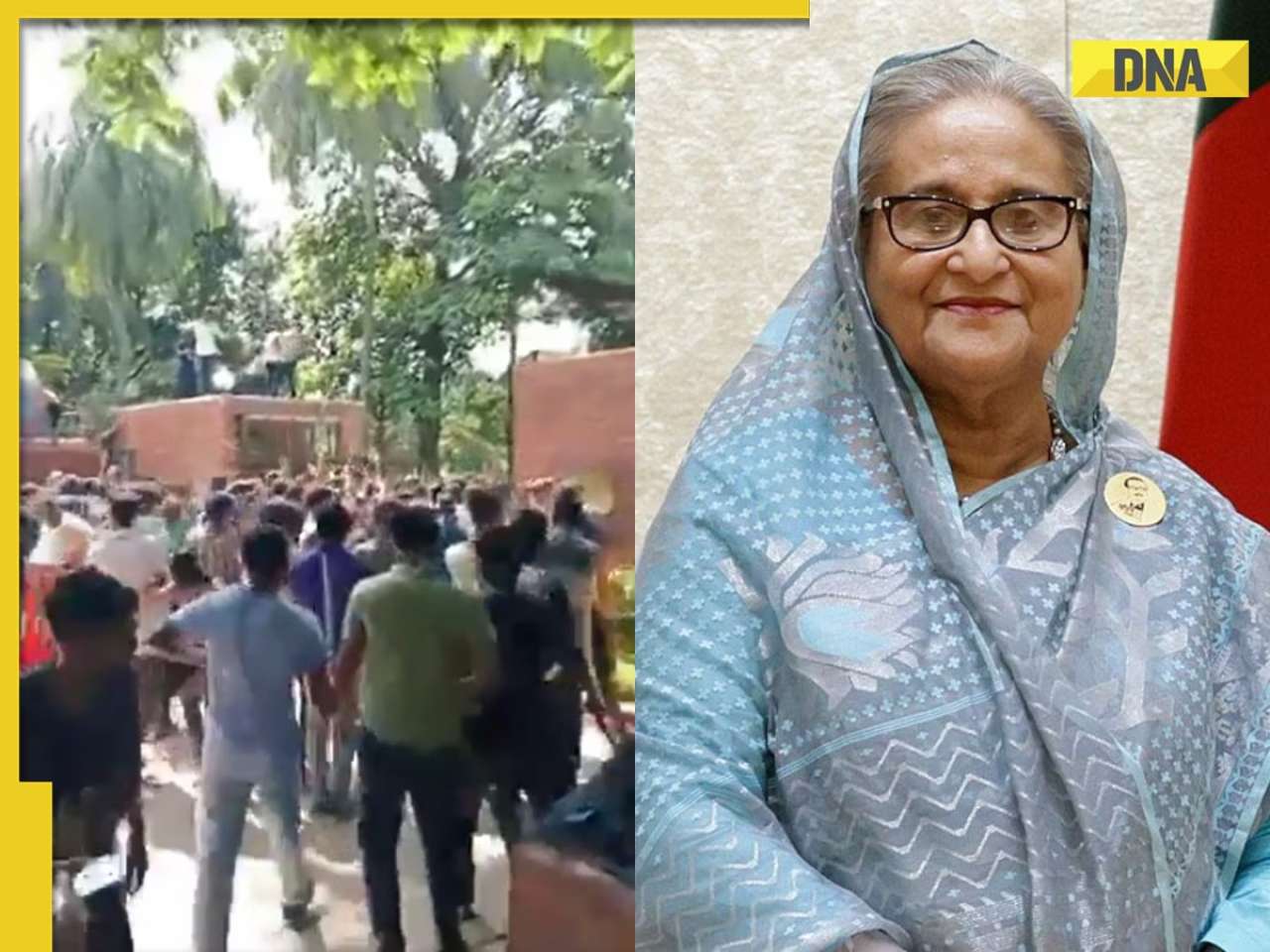
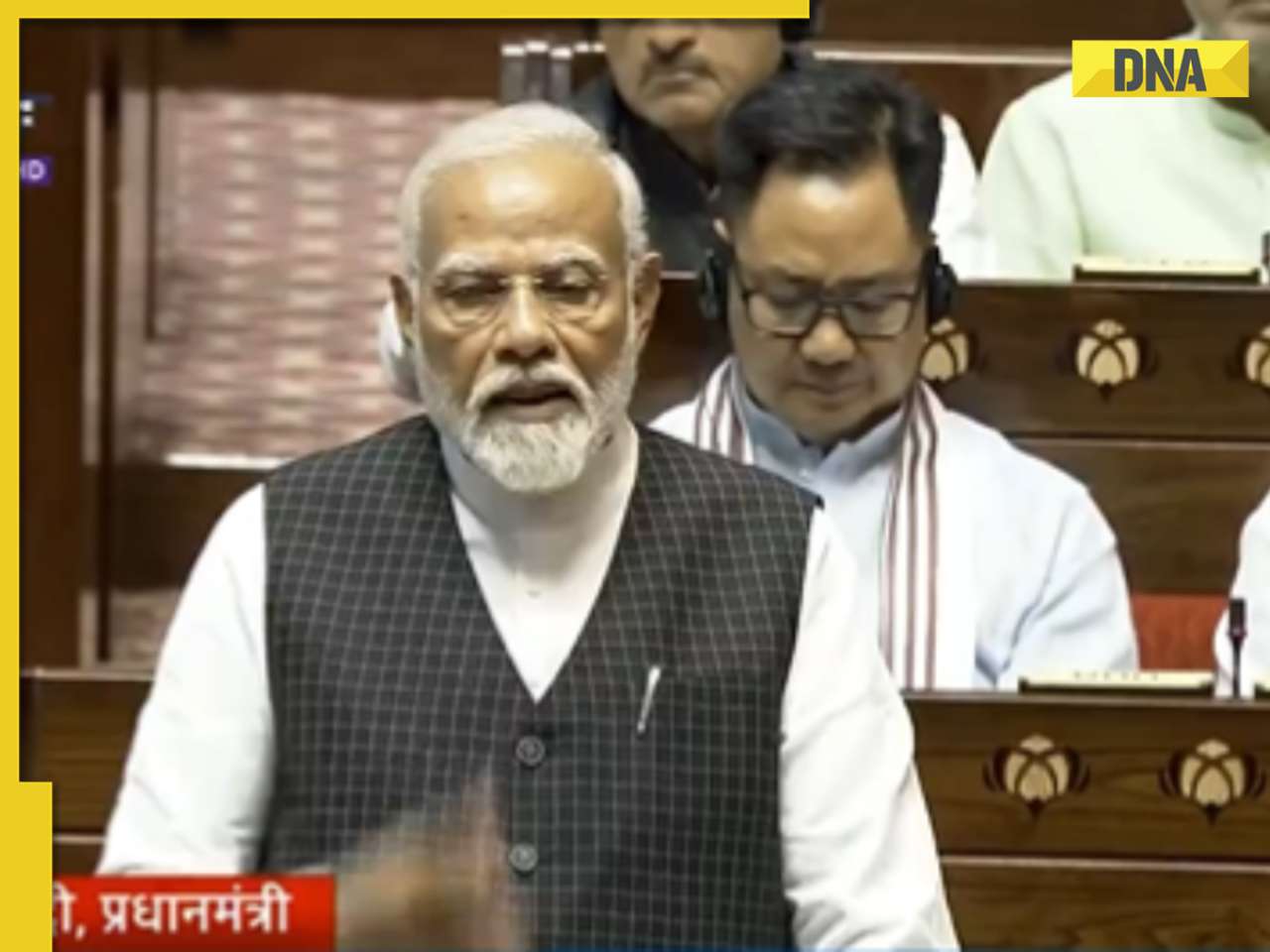
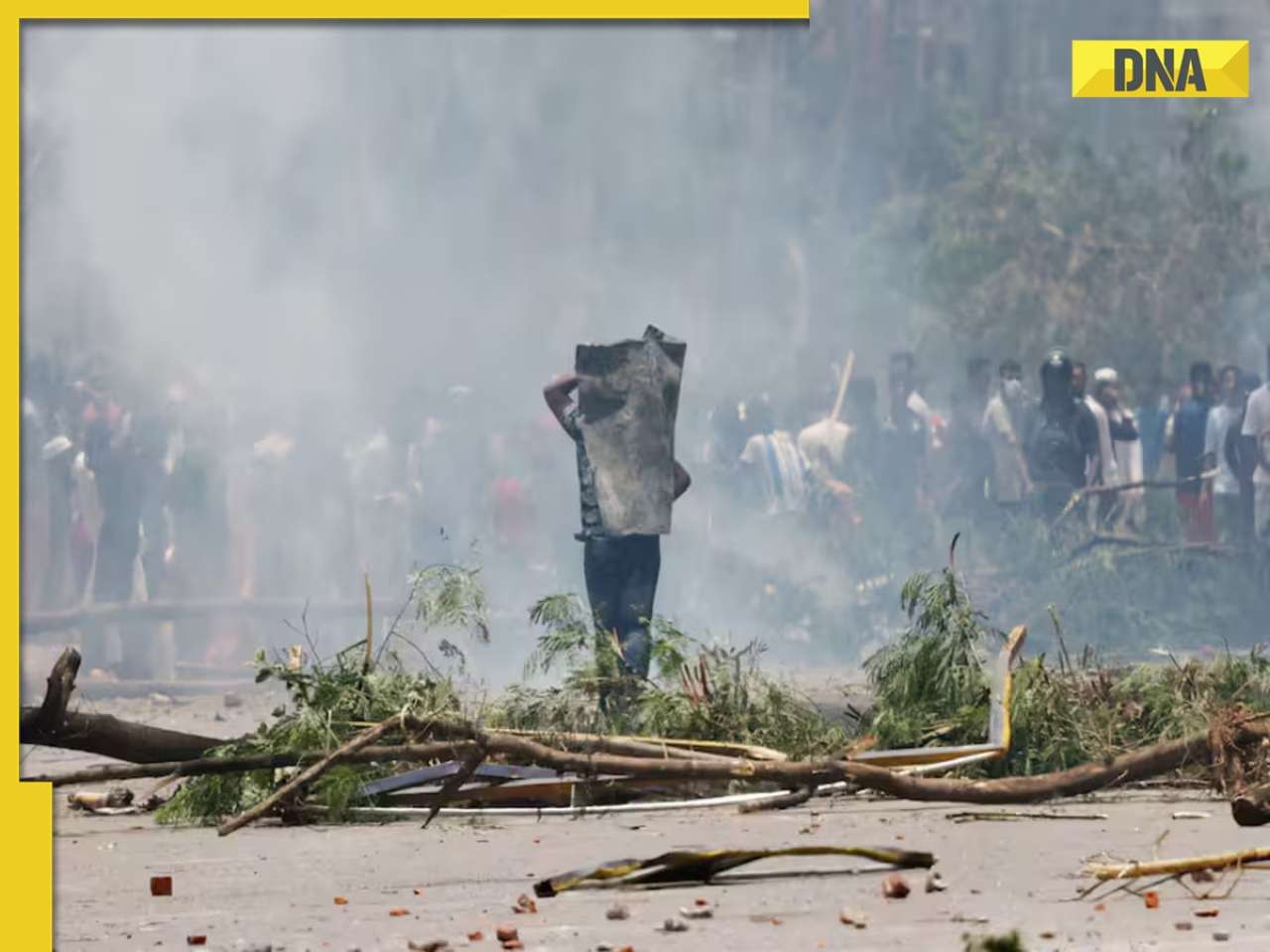
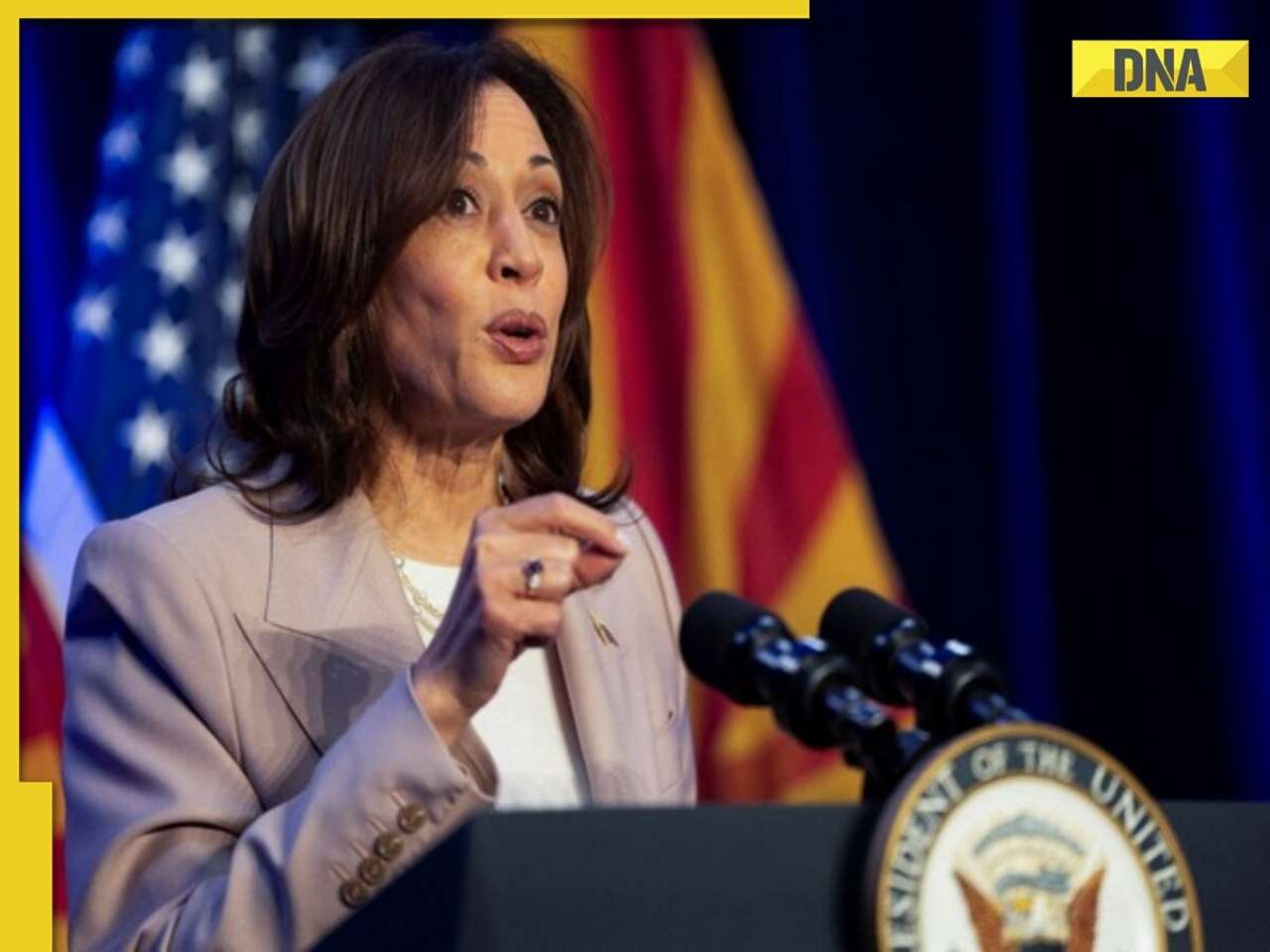
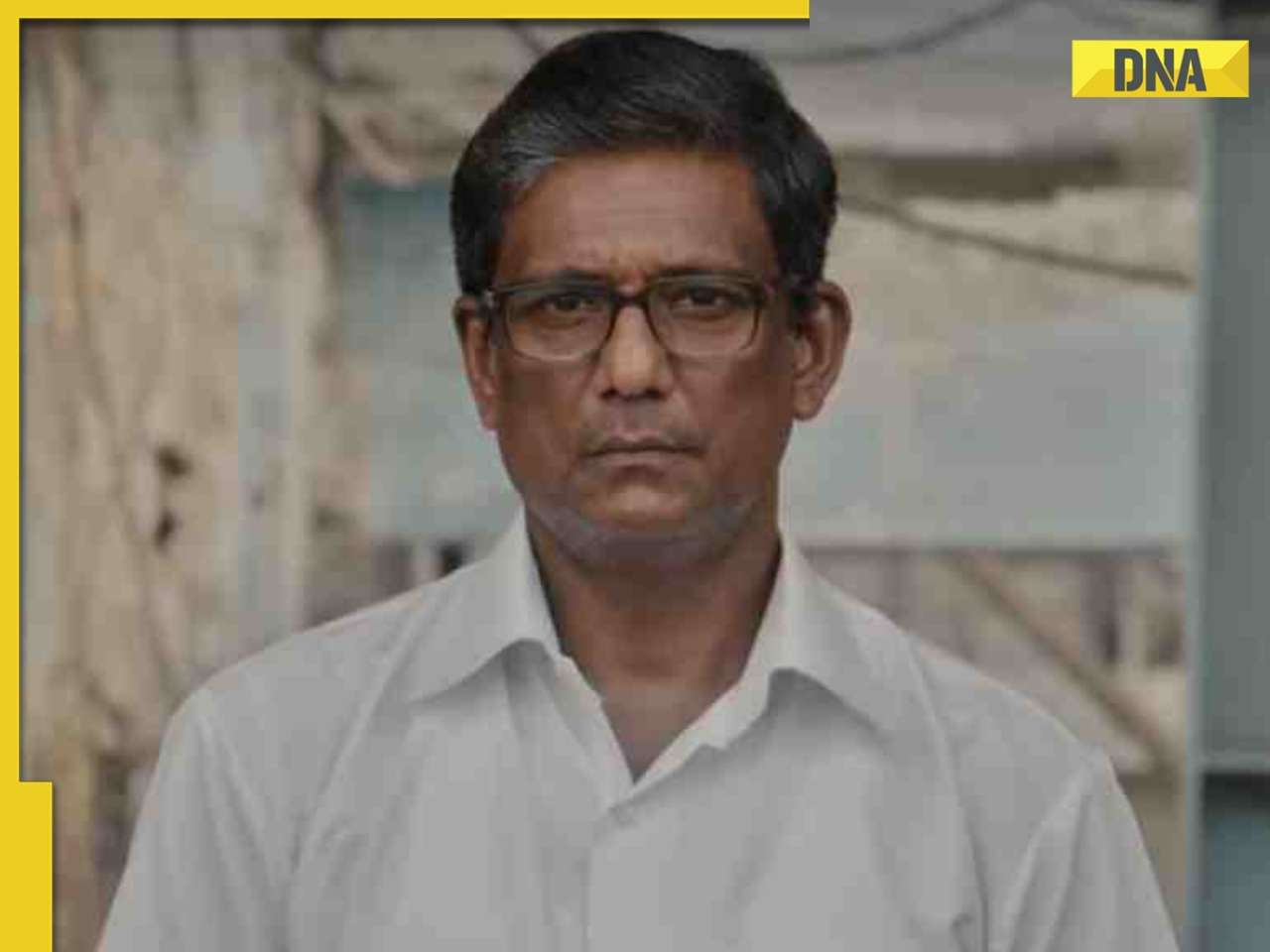




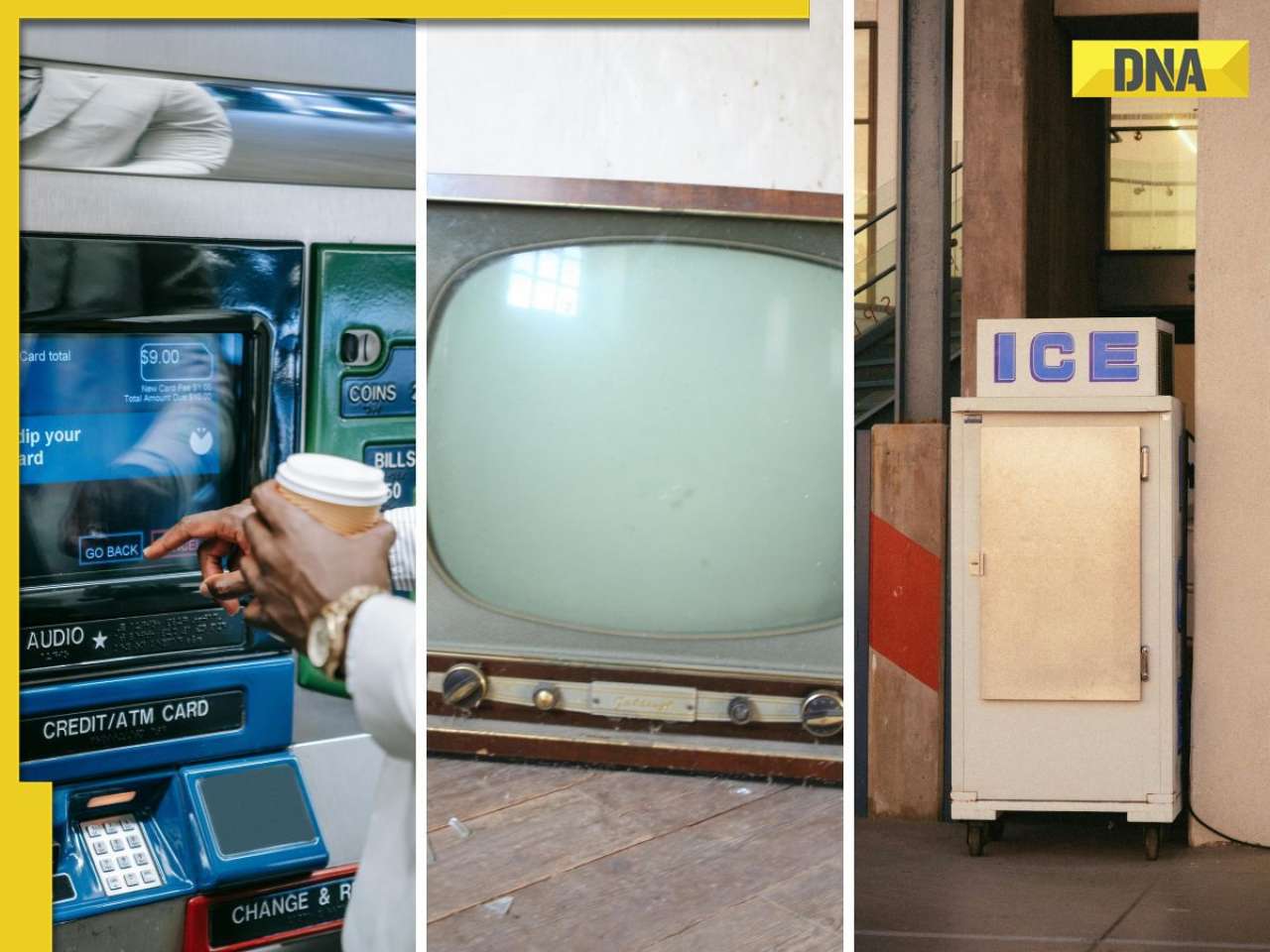


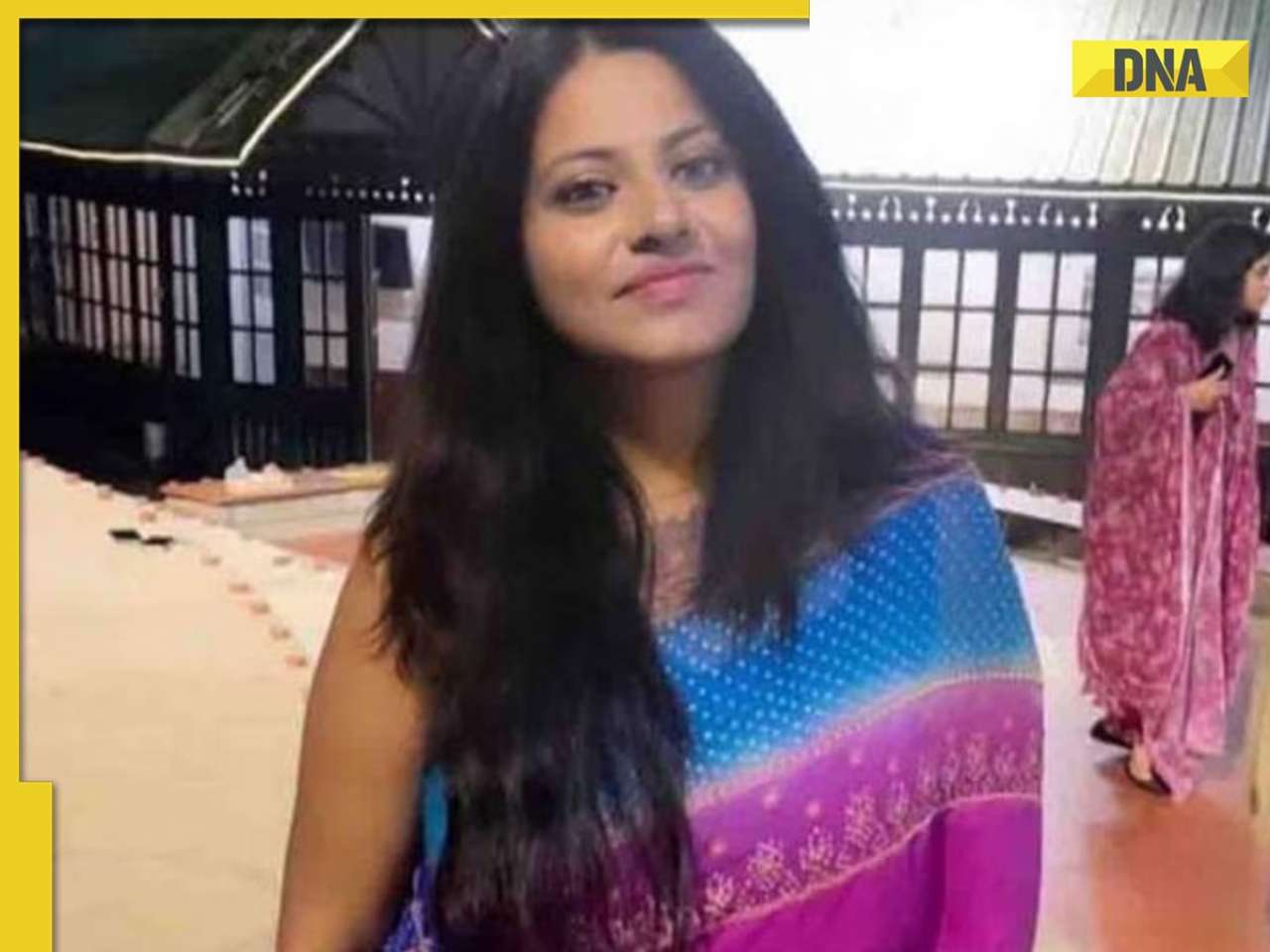

)
)
)
)
)
)
)
)
)
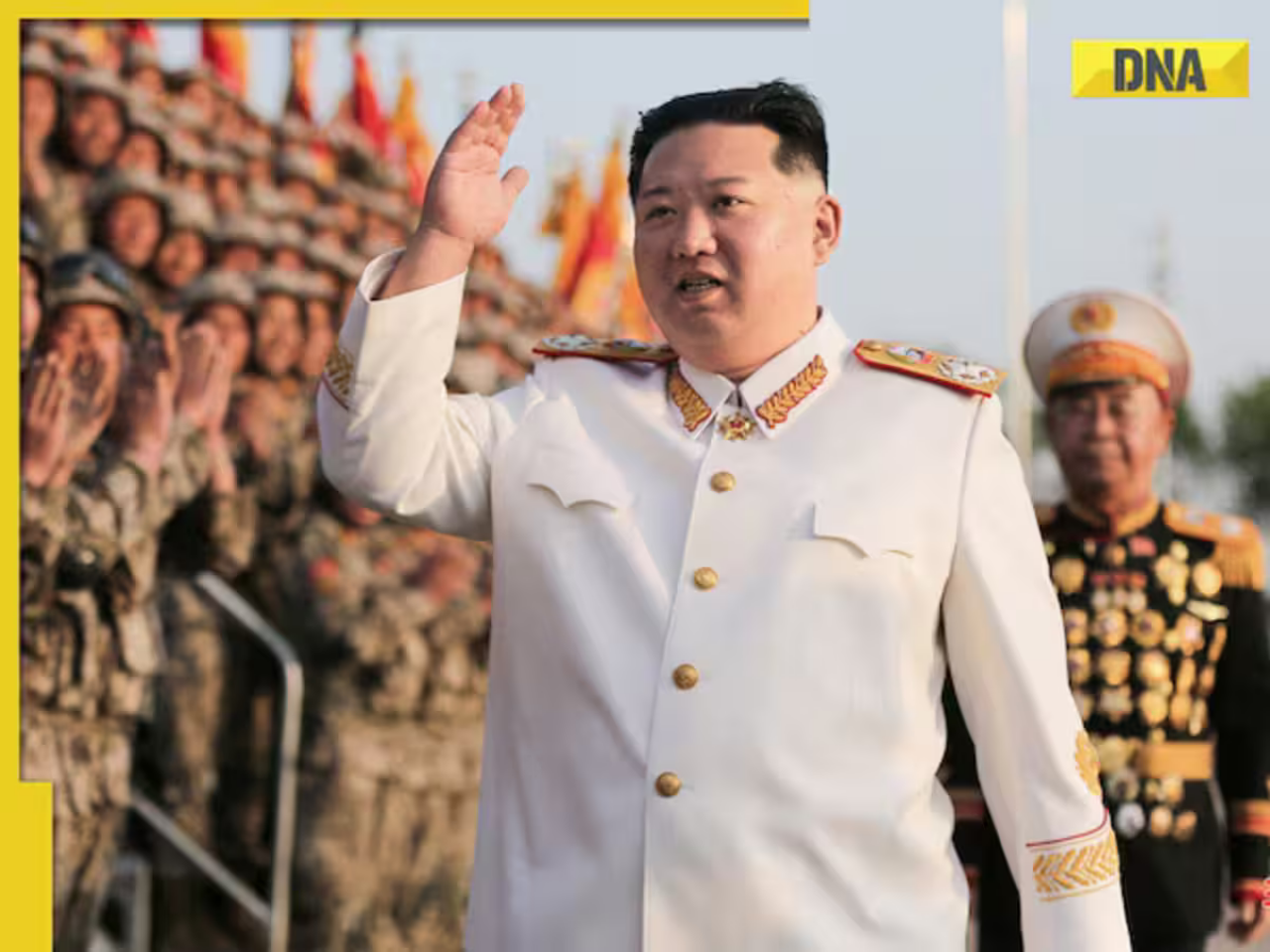)
)
)
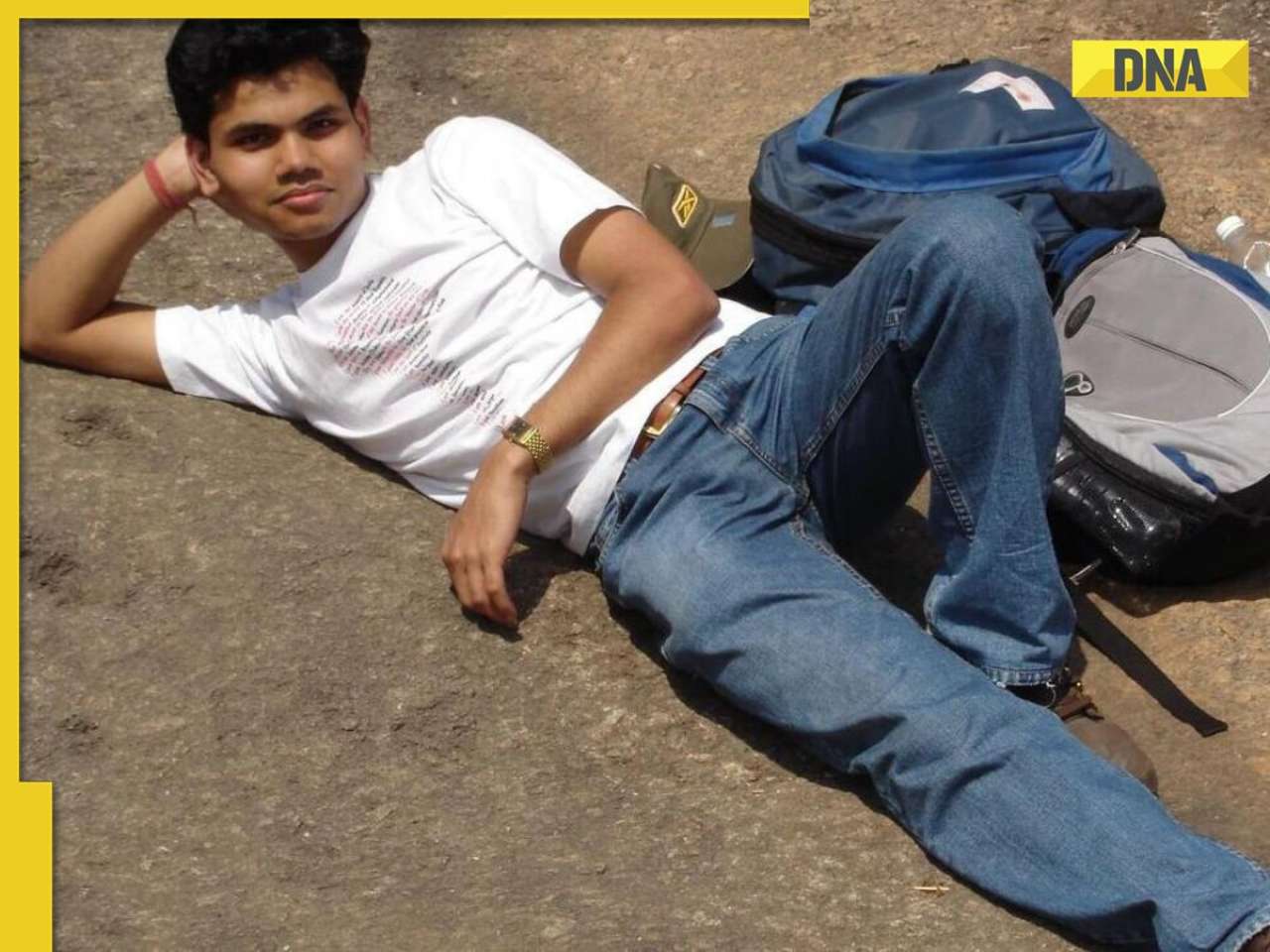)
)
)





)
)
)
)
)
)